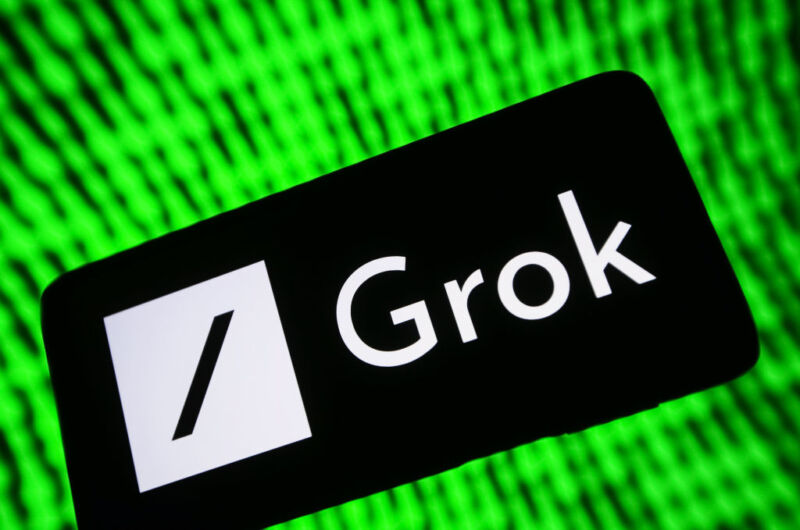
X’s chatbot Grok is supposed to be an AI engine crunching the platform’s posts to surface and summarize breaking news, but this week, Grok’s flaws were once again exposed when the chatbot got confused and falsely accused an NBA star of criminal vandalism.
“Klay Thompson Accused in Bizarre Brick-Vandalism Spree,” Grok’s headline read in an AI-powered trending-tab post that has remained on X (formerly Twitter) for days. Beneath the headline, Grok went into even more detail to support its fake reporting:
In a bizarre turn of events, NBA star Klay Thompson has been accused of vandalizing multiple houses with bricks in Sacramento. Authorities are investigating the claims after several individuals reported their houses being damaged, with windows shattered by bricks. Klay Thompson has not yet issued a statement regarding the accusations. The incidents have left the community shaken, but no injuries were reported. The motive behind the alleged vandalism remains unclear.
Grok appears to be confusing a common basketball term, where players are said to be throwing “bricks” when they take an airball shot that doesn’t hit the rim. According to SF Gate, which was one of the first outlets to report the Grok error, Thompson had an “all-time rough shooting” night, hitting none of his shots on what was his emotional last game with the Golden State Warriors before becoming an unrestricted free agent.
In small type under Grok’s report, X includes a disclaimer saying, “Grok is an early feature and can make mistakes. Verify its outputs.”
But instead of verifying Grok’s outputs, it appeared that X users—in the service’s famously joke-y spirit—decided to fuel Grok’s misinformation. Under the post, X users, some NBA fans, commented with fake victim reports, using the same joke format to seemingly convince Grok that “several individuals reported their houses being damaged.” Some of these joking comments were viewed by millions.
First off… I am ok.
My house was vandalized by bricks 🧱
After my hands stopped shaking, I managed to call the Sheriff…They were quick to respond🚨
My window was gone and the police asked if I knew who did it👮♂️
I said yes, it was Klay Thompson
— LakeShowYo (@LakeShowYo) April 17, 2024
First off…I am ok.
My house was vandalized by bricks in Sacramento.
After my hands stopped shaking, I managed to call the Sheriff, they were quick to respond.
My window is gone, the police asked me if I knew who did it.
I said yes, it was Klay Thompson. pic.twitter.com/smrDs6Yi5M
— KeeganMuse (@KeegMuse) April 17, 2024
First off… I am ok.
My house was vandalized by bricks 🧱
After my hands stopped shaking, I managed to call the Sheriff…They were quick to respond🚨
My window was gone and the police asked if I knew who did it👮♂️
I said yes, it was Klay Thompson pic.twitter.com/JaWtdJhFli
— JJJ Muse (@JarenJJMuse) April 17, 2024
X did not immediately respond to Ars’ request for comment or confirm if the post will be corrected or taken down.
In the past, both Microsoft and chatbot maker OpenAI have faced defamation lawsuits over similar fabrications in which ChatGPT falsely accused a politician and a radio host of completely made-up criminal histories. Microsoft was also sued by an aerospace professor who Bing Chat falsely labeled a terrorist.
Experts told Ars that it remains unclear if disclaimers like X’s will spare companies from liability should more people decide to sue over fake AI outputs. Defamation claims might depend on proving that platforms “knowingly” publish false statements, which disclaimers suggest they do. Last July, the Federal Trade Commission launched an investigation into OpenAI, demanding that the company address the FTC’s fears of “false, misleading, or disparaging” AI outputs.
Because the FTC doesn’t comment on its investigations, it’s impossible to know if its probe will impact how OpenAI conducts business.
For people suing AI companies, the urgency of protecting against false outputs seems obvious. Last year, the radio host suing OpenAI, Mark Walters, accused the company of “sticking its head in the sand” and “recklessly disregarding whether the statements were false under circumstances when they knew that ChatGPT’s hallucinations were pervasive and severe.”
X just released Grok to all premium users this month, TechCrunch reported, right around the time that X began giving away premium access to the platform’s top users. During that wider rollout, X touted Grok’s new ability to summarize all trending news and topics, perhaps stoking interest in this feature and peaking Grok usage just before Grok spat out the potentially defamatory post about the NBA star.
Thompson has not issued any statements on Grok’s fake reporting.
Grok’s false post about Thompson may be the first widely publicized example of potential defamation from Grok, but it wasn’t the first time that Grok promoted fake news in response to X users joking around on the platform. During the solar eclipse, a Grok-generated headline read, “Sun’s Odd Behavior: Experts Baffled,” Gizmodo reported.
While it’s amusing to some X users to manipulate Grok, the pattern suggests that Grok may also be vulnerable to being manipulated by bad actors into summarizing and spreading more serious misinformation or propaganda. That’s apparently already happening, too. In early April, Grok made up a headline about Iran attacking Israel with heavy missiles, Mashable reported.
